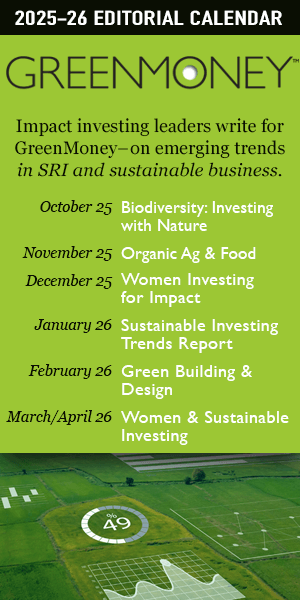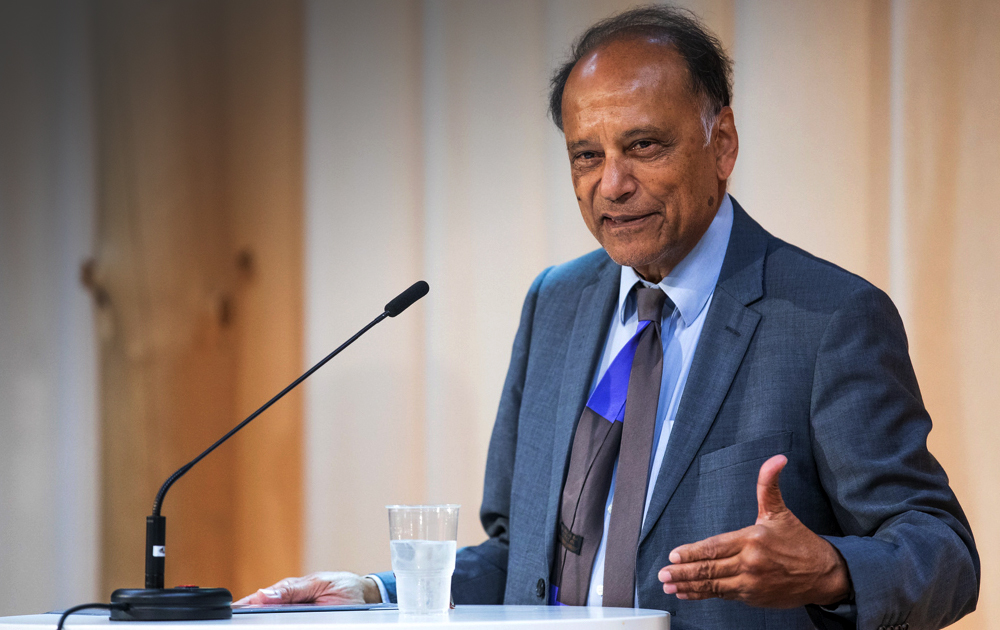The financial services industry is a bit obsessed with trying to understand the next generation of investors – the notorious millennials. And for good reason – millennials represent the largest generation in history with a spending power of $1.5 trillion and growing[1]. Many millennials are well into their wealth accumulation phase and have already begun to inherit more than $30 trillion in the largest wealth transfer of all time[2].
As a millennial working in the financial services industry, I can’t help but laugh when I hear my generation being talked about as though we’re aliens from an unknown planet. “They don’t invest like us.” “They don’t communicate like us.” “They don’t work like us.” “They don’t learn like us.” And, yes, sometimes it feels like the differences between the generations are insurmountable. But, I believe that when it comes to money, we actually aren’t all that different. Regardless of what generation you belong to, money is still inherently personal, complicated and ultimately a vehicle to attain the same goal – to live a comfortable, rewarding life.
Money is Inherently Personal
Like the Boomer and Gen X generations, millennials are uncomfortable talking about our own money – how much we have, don’t have, our budget, etc. That is because money is still a taboo topic in our society. At happy hour, I don’t ask my friend how much she received in her year-end bonus. My husband and I just bought our first home – no one asked how much we paid or what our loan amount was, because it’s personal. Talking about money, in that way, still feels off-limits to our generation. So, like our parents’ generation, we need to find somewhere, or someone, to help us privately address our financial matters because we aren’t discussing specifics with friends or colleagues.
However, talking about how we invest is not a private matter. We rely heavily on peer-to-peer recommendations and want to know what everyone else is doing. We’re the crowdsourcing generation – we love to use social media to get advice and opinions from a wide group of people. So, when it comes to money, we want to know why our friend went with the American Express credit card, why they chose to use a digital advisor, why they chose sustainable investments, why they used their bank and not a mortgage broker for their homeowner’s loan. And then who – who did you use and did you like them? Should I use them? We take this information and then we do our homework, we are “verifiers” and want to be sure in a world where options are endless we are finding the best one.
This presents an enormous opportunity for financial advisors. Access to information is at our fingertips, but we need help figuring out what to do with it – that is the value an advisor can bring. Millennials want to be involved in the financial planning process but we appreciate advisors’ experience and expertise. If an advisor can position themselves as a knowledgeable, collaborative partner who can help a Millennial create a custom financial plan, they’ll have a good chance of winning the business of not just that Millennial, but their friends too.
Money is Complicated
Money has always been complicated. Like previous generations, most of us were not taught basic finance in school and thus have an uphill battle ahead of us when it comes to managing our money. Previous generations dealt with significant events that impacted their finances – the Great Depression, the early-1980s recession, the dot-com boom (and bust), the mortgage crisis, and the list goes on. The reality is that every generation faces major challenges – millennials have lived through high unemployment rates, the 2008 financial crisis, the Bernie Madoff scandal and Occupy Wall Street. Not to mention, higher education has left us saddled with an enormous amount of debt – nearly half of millennials have student loan debt– that is leading towards a retirement savings crisis[3].
Because of what millennials have seen and experienced, we have a severe distrust for Wall Street and a risk tolerance level that is more similar to our grandparents than to our parents.
Un-complicating money is what advisors do and Boomers have relied on them to do this for their entire lives. Today, millennials have an endless amount of options for managing our money, but what we often lack is a trusted partner – someone we can talk to when things get complicated. Advisors who are successful working with millennials meet us where we are – they address our loan concerns, suggest financing options for buying our first home and create a budgeting strategy to help us achieve our near-term goals.
Money is a Way to Express Our Values
Investing alongside your goals and values is not unique to any generation, but it has shown to be most important to ours. We are the most mission-driven generation in history and firmly believe we can change the world as informed consumers, philanthropists and investors. Today 94% of millennials say they are interested in putting their skills to work to benefit a cause and over 80% are interested in sustainable investing[4].
Creating wealth to live a comfortable life is a goal that spans generations, but how you arrive at that wealth is where the difference lies. Millennials want to make smart investments that produce strong returns and are aligned with our values. It is the same when we shop – think of brands like Tom’s and Warby Parker – they have been successful because they deliver good products and make a positive social impact on the world.
This attitude is reflected in the way we want to invest and should be top of mind for advisors working with us. Identifying investments that address issues we care about – such as climate change or gender equality – shows us that you’re listening to what we care about and can help you gain our trust. Many of us don’t want to own companies that are paying their female executives less than their male counterparts, polluting the land where they are headquartered, or sweeping sexual assault issues under the rug. And we need your help identifying investments that align with these values. The sustainable investment space is rapidly growing due to demand from investors of all generations, so having a handle on sustainable investing options can be a smart strategy for all your clients, not just millennials[5].
The bottom line: millennials are just like everyone else. Money is a tool that helps us reach our goals, make an impact on issues that we care about and ultimately live a comfortable life. But we can’t do it alone – there is an enormous opportunity for advisors who are willing to help us get there.
Article by Kelly Coyne, Vice President, Global Women’s Strategies, Impax Asset Management LLC, investment adviser to Pax World Funds, and Pax Ellevate Management LLC, https://paxworld.com
Kelly is responsible for national sales and marketing initiatives related to the Pax Ellevate Global Women’s Index Fund. She also helps financial advisors build their practices and better engage and serve the next generation of clients through the firm’s Millennials & Money practice management initiative. Kelly joined the firm in 2014, bringing with her several years of sales and client service experience within the mutual fund industry at Eaton Vance Corporation and F-Squared Investments.
Kelly earned a Bachelor of Arts degree in Human Rights from Trinity College. She holds the Financial Industry Regulatory Authority (FINRA) Series 6, 63 and 65 registrations. Kelly Coyne is a registered representative of ALPS Distributors, Inc.
Article Notes:
[4] https://www.entrepreneur.com/article/271972 and https://www.morganstanley.com/ideas/sustainable-socially-responsible-investing-millennials-drive-growth
[5] https://www.ussif.org/files/Trends/US%20SIF%202016%20Trends%20Overview.pdf

















